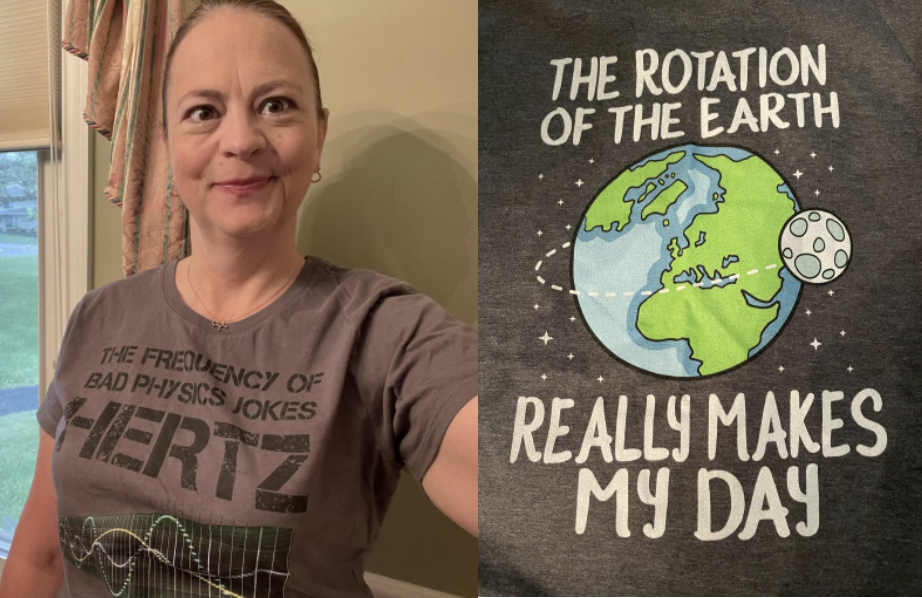Hello everyone! My name is Stacey Sebert and I am a science teacher at South Colonie in Albany, NY. Recently I told each of my classes that I will be an On-Board Educator with Rutgers University for their PUFINS Project. I discussed my role on the ship as well as the science behind the project. I teach mostly middle school, 7th and 8th graders, but I also teach a Marine Biology high school elective for upperclassmen. The questions and comments throughout the day were very comical at times and some were rather interesting. Here are a few memorable comments and questions (with my answers).
“Oooohhh, you are working with a University? That’s fancy!”
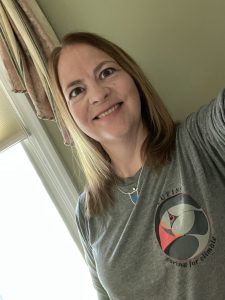
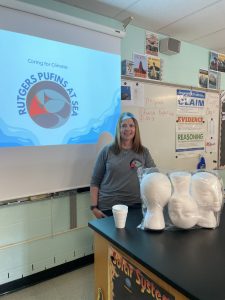
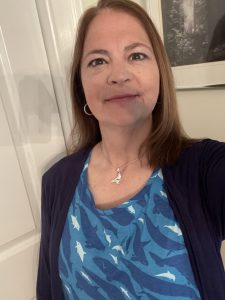
“PUFINS stands for what? Paleo Unsaturated-alkanone Fluxes In Northwest Sediments. That’s a mouthful!”
Q – “What are the scary looking Styrofoam heads for?”
A – “We are going to decorate them with marker and send them to the bottom of the ocean to see what happens to them when there’s a TON of water pressure on them. Then I will bring them back to school for everyone to see!”
“Ms. Sebert, I think you guys are going to win the Nobel Prize!”
My response – “Wow, I’m flattered that you think I’m even close to worthy of such an award.”
Q – “Don’t you think you’re going to get seasick? I get sick just thinking about being on a boat or in a car.”
A – “Yes, I worry about that. I get car sick when I sit in the back seat on a windy road but I’ve only been seasick twice. Once was in the inner passage in Alaska when the water was very choppy and once was on the Long Island Sound on a ferry the day after a hurricane passed through.”
Student response: “Wow, you really like to travel.”
A – “Yes! It’s my favorite thing to do! “
Q – “What will you do if your roommate snores?”
A – “Well we work opposite shifts so I don’t think we will be sleeping at the same time but I plan on bringing ear plugs, just in case. I will probably hear the noises of the ship so the ear plugs are a great idea!”
Q – “Wow you can’t stream anything! Don’t you think you’ll be bored?”
A – “Not at all. We work 12 hour shifts and there’s a lot of things to do besides coring. We will hold webinars, write blogs, go to the gym or movie room, play ping pong, and there are lots of people to talk to on the ship.That’s what I really hope to do – learn from everyone on the ship. Science is fascinating!”
Q – “Paleoclimatology. If you didn’t explain what that meant, I would think that’s a made up word. Is that even English?”
A – “Yes, break up the word. Paleo means ancient. Climate is the weather over a long period of time and -ology is the study of something. Put it together. The study of long term ancient weather. We are looking at the sediments to look at what the climate was like over the last 12,000 years.”
Q – “How do you study the past climate temperatures? You don’t have a time machine and thermometers didn’t exist then.”
A – “Great question! We use what’s called a proxy. In this case, we will look at plankton (specifically alkanones in them) and infer the climate’s temperature based on the presence or absence of double bonds (think saturated vs unsaturated fats) within the alkanones in the plankton.”
Q – “Ms. Sebert, I know how much you like watching the Yankees and listening to music. What are you going to do on the ship?”
A – “I AM going to miss watching the Yankees games every night – that will be tough! As for the music, I downloaded songs on my phone so I will still be able to listen to my favorite songs and artists.”
Follow up Q – “So what songs/artists did you download? “
A – “Well my favorite genre of music is from the 80’s and 90’s but my taste in music is rather eclectic. Anything from Madonna to LIVE to Halestorm or Incubus are some of my favorite artists.”
Student – “Leave it to you to like a group named Halestorm.”
Q – “Ms. Sebert, what are you going to do about all your science shirts and clothing you wear to school everyday? Are you going to be able to wear them on the ship? Are you worried they will get muddy?”
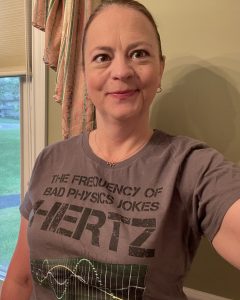
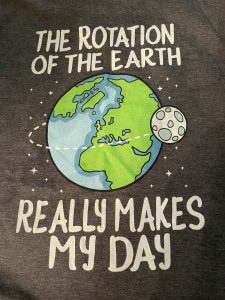
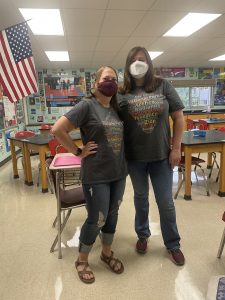
A – “I love wearing all my science shirts and dresses! I will probably wear a couple shirts on the ship during webinars. I will be sure to cover up so they don’t get muddy when taking core samples.”
High School student I also taught in Middle School – “Now you are on the other side of things. I remember talking to a scientist in Antarctica for Project SWARM about penguins. Then we talked to a teacher on the JOIDES ship about taking core samples when I was in your class in middle school. I was fascinated by this and you really brought out my love for science. I’m so proud and excited that you get to be a part of this experience in the field and that you get to host webinars. I cannot wait to see you on the ship!”
